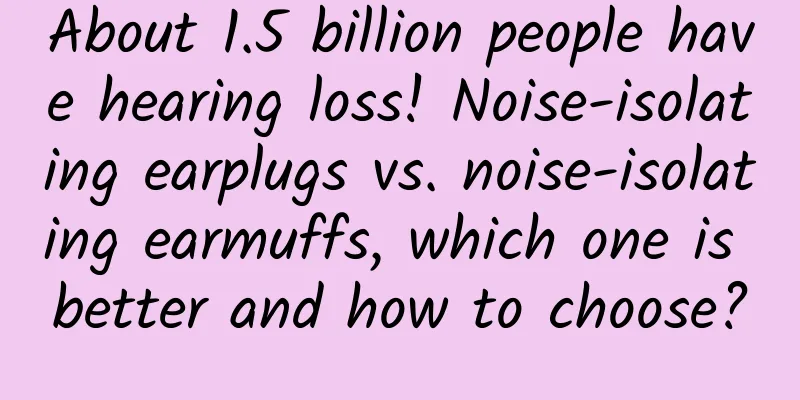Why do you feel like everything is getting worse?

|
Leviathan Press: Each of us lives in a certain bias - this seems to be good news for people who do not have the ability to reflect - since there is bias anyway, there is no need to reflect, right? Little do people know that this kind of "reaction" of self-reflection, even if there is suspicion of overcorrection, is also a good opportunity to correct the concept. Self-reflection means trying to accept and tolerate different ideas, and it can also derive a new perspective from the standpoint of people with different opinions. The neurological evidence provided in today's article also explains the factual cause of the so-called "chicken and duck talk" from one side. This is somewhat like the confirmation bias in psychology, that is, everyone selectively recalls and collects favorable details to support existing opinions, but deliberately ignores information that is not conducive to themselves. This also makes sense in terms of emotions. For example, people who are long-term negative and pessimistic are unlikely to be interested in blind optimism. Even if they are, they usually only go through an internal explanation to ultimately attribute it to pessimism and despair. Your brain is like an impeccable movie projector. The sights, sounds, and a host of other mixed sensory information are transmitted through the rotating "film" - that is, the existence of "you" - and your brain then reassembles this mixed information into an objective, uncorrupted experience, which you call consciousness. Of course, this is wrong. Your brain is not an impeccable projector. The reality it constructs for you is biased and susceptible. Expectations, experiences, emotions, and many other variables shape the world your brain creates. © Amazon In his 2019 book Rethinking Consciousness, Princeton psychologist and neuroscientist Michael Graziano explains that the brain’s interpretation of reality is based on internal models that are fragmented, subjective, and skewed — “much like an Impressionist or Cubist painting would represent reality,” he writes. “Our intuitive understanding of the world around us and of ourselves is always distorted and simplified, and it all depends on those internal models,” he added. Recently, a lot of scientific research has explored how the brain builds these internal models and how their flaws can distort reality and get us into trouble. Some of this research has examined the brain's heavy reliance on predictions based on experience. While such predictions can certainly be helpful in certain situations, these predictions—and, by extension, your understanding of reality—can be distorted in some disturbing ways. Look at this dot: Is it blue or purple? In a 2018 study in the journal Science, researchers asked this question again and again. In a series of five experiments, they found that people’s answers were surprisingly easy to manipulate. (science.sciencemag.org/content/360/6396/1465.abstract) In one experiment, researchers showed people hundreds of dots that ranged from pure blue to pure purple. At first, the ratio of blue to purple was equal, and people's responses reflected this 50-50 split. But over time, the researchers showed some of the subjects fewer and fewer blue dots. Invariably, these subjects began to label more of the purple dots as blue. "When the frequency of blue dots decreased, participants' conceptual definition of the color blue expanded," the authors wrote. It seems that people's brains are designed to balance the color ratio of the dots based on previous experience. Even when the researchers explicitly told the subjects that they would see fewer blue dots, people still made the same mistakes. The dots are one thing. But in two other experiments, the team found that the same effect emerged when people evaluated threatening faces or weighed ethical issues. "For all of these different types of judgments, your definition of 'blue' or 'threatening' or 'morally corrupt' is influenced by the prevalence of what you've seen before," said David Levari, PhD, a postdoctoral associate at Harvard and the study's lead author. "So when the threatening faces or blue dots disappear, you still see them." “The brain makes relative judgments, and those judgments can be manipulated and influenced in ways that people aren’t aware of.” He and his colleagues call this phenomenon “prevalence-induced concept change.” Basically, the reality your brain creates is influenced by its own experiences and expectations. “Your brain is not like a tape measure that can measure the exact length of something,” Levari said. “It makes relative judgments, and those judgments can be manipulated and influenced in ways that people aren’t aware of.” © MIT News In many situations, this tendency to make relative judgments is helpful and productive. It allows people to make quick decisions or assessments based on the circumstances of a situation. But Levari's research shows that this tendency can also cause us to mistakenly perceive threats or unethical behavior where they don't exist. The brain's apparent tendency to reshape new information to make it conform to old expectations could have "alarming" implications, Levari and his colleagues wrote in their study paper. “Despite the extraordinary progress modern societies have made in addressing a wide range of social problems, from poverty, illiteracy, violence, to infant mortality, most people believe that the world is getting worse,” they wrote. “The fact that the concept has become broader as the actual examples have become smaller may be one source of this pessimism.” Even when things are objectively getting better, the brain may have trouble recognizing that improvement because its understanding of the situation is outweighed by its pre-existing beliefs. In other words, we see what we expect to see. While this phenomenon has its pros and cons — namely, it can make our outlook overly optimistic — Levari says some of our habits may be pushing our minds toward overly negative representations of the world. According to a 2020 report from Nielsen, the average American adult spends 11 to 12.5 hours a day reading/listening to/watching some form of media. In 1980, this figure was about 7 hours a day. As we are exposed to more and more media content, the rise of machine learning and targeted content algorithms creates filter bubbles (information echo chambers) that guide us to content that reinforces our beliefs, feelings, or inclinations. Levari’s research shows that even if we know what we are seeing is unbalanced or inaccurate, our opinions are still influenced. “The things you see on social media or other media may not be very representative of what’s going on in the real world or your personal world, but they can stick in your mind very deeply,” he said. If you expose your brain to a constant stream of angry, vitriolic, resentful, depressed, hyperpolitical, or otherwise biased content, those traits will seep into your brain's interpretation of reality. On the other hand, if you expose your brain to content that is inspiring, funny, optimistic, joyful, or has other positive qualities, your reality will be pushed in those directions. “The main conclusion,” Levari added, “is that we are very sensitive to the things we are exposed to, especially to things we see over and over again.” By Markham Heid Translated by Kushan Proofreading/Rabbit's Light Footsteps Original article/elemental.medium.com/why-the-world-always-seems-to-be-getting-worse-even-when-its-not-666c42c0cdb9 This article is based on the Creative Commons License (BY-NC) and is published by Kushan on Leviathan The article only reflects the author's views and does not necessarily represent the position of Leviathan |
<<: Where is the home of penguins? Why are penguins cold-resistant?
>>: What are the characteristics and functions of penguin wings? Do penguins have feathers?
Recommend
What should pregnant women do if they have uterine fibroids?
If a pregnant woman suffers from uterine fibroids...
Can I use banana peel to treat vaginal itching?
Women need to keep their genitals clean in their ...
Symptoms of gestational sac not flowing out
If the gestational sac does not completely flow o...
Did you know that exercise can relieve anxiety and depression?
Anxiety is an emotion we often have. When faced w...
Postpartum hip widening recovery exercise
The femur is a bone that extends upward on both s...
Slow growth of gestational sac
The gestational sac is the first thing that turns...
How about Red Core Fujie Wash
For women, gynecological diseases are very scary....
Can I have an abortion if I'm pregnant?
You can have medical abortion when you just get p...
Why is the Qatar World Cup held in winter?
The Qatar World Cup is the first time that the Wo...
What is the "white frost" on fruits? Mold? Pesticide residue? Or...
When people buy fruits and vegetables, they are m...
What are some tips for losing weight during breastfeeding?
Women generally have a problem after giving birth...
Introducing the causes of spotting after pregnancy
Let me introduce to you the reasons for spotting ...
The benefits of breast massage for husband
Acupoints are distributed throughout the human bo...
Canalys: Global wearable device shipments to grow 4% in 2024
According to Canalys, the global wearable device ...
What is the thick brown vaginal discharge?
Leucorrhea is a kind of mucus secreted by the fem...









